Canterbury Studies in Spiritual Theology (14 vols.)
Digital Logos Edition
Overview
The Canterbury Studies in Spiritual Theology collection contains 14 volumes which survey the lives and works of influential Anglican thinkers. The collection includes writings from the sixteenth century to the present day, encompassing significant events in the history of Anglicanism. Read about the life of sixteenth-century Archbishop Thomas Cranmer, learn about the contributions of the Caroline Divines, and study the previously unpublished works of biblical scholar C. F. D. Moule. Scholars, students, and others interested in the Anglican tradition’s history of spiritual theology will find this collection an excellent addition to their digital library.

- Includes selected writings from influential Anglican thinkers
- Offers commentary on the lives and works of significant theologians
- Covers Anglican history from the sixteenth century to the present era
- Title: Canterbury Studies in Spiritual Theology
- Publisher: Canterbury Press
- Volumes: 14
- Pages: 3,239
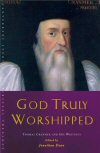
Archbishop Thomas Cranmer played a critical role in the development of the Church of England. He is best remembered as the prime editor and creator of the two Books of Common Prayer of 1549 and 1552, which stand at the head of Anglican liturgical identity and tradition. God Truly Worshipped offers a survey of Cranmer’s growth and development as theologian and leader of the church through the lens of his written work—liturgy, homilies, correspondence, and official doctrinal statements. This volume introduces Cranmer as a churchman, theologian, and liturgist whose contribution to Anglican spirituality cannot be underestimated.
Jonathan Dean is a Reformation historian. He studied classics at Oxford and theology at Cambridge, and then earned his PhD under Eamon Duffy. He lives in Chicago and teaches Christian history at Aurora University in Illinois.
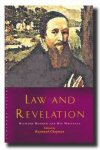
Richard Hooker is widely regarded as the leading apologist of the Elizabethan age. Much of Anglicanism as we know it today owes its character to the course Hooker deftly charted between Catholic and Protestant claims. His Laws of Ecclesiastical Polity set out the constitution of the Church of England, and represent a philosophical and theological outlook that is characteristic of Anglicanism to this day. He opposed a literal and absolute interpretation of Scripture and instead advocated an appeal that incorporated reason–which remains the response of mainstream Anglicanism to complex ethical and moral questions today. This volume sets Richard Hooker’s life in the context of contemporary parties and opinions within the Elizabethan Church and provides an extensive reader of his original work in the fields of Scripture, reason, tradition, doctrines and the governance of the Church.
Raymond Chapman is emeritus professor of English literature in the University of London, is a non-stipendiary priest in the diocese of Southwark, and was vice-chairman of the Prayer Book Society.
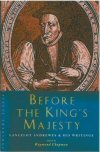
Lancelot Andrewes was a towering figure in the formative years of the Church of England. Averse to the puritanical spirit of the age, he helped to create a distinctive Anglican theology, moderate in outlook and Catholic in tone. He believed that theology should be built on sound learning. He held a high doctrine of the Eucharist, and he emphasized dignity and order in worship. Before the King’s Majesty offers a wide selection of Andrewes’ writings and a general introduction to his life.
Raymond Chapman is emeritus professor of English literature at the University of London, is a non-stipendiary priest in the diocese of Southwark, and was vice-chairman of the Prayer Book Society.
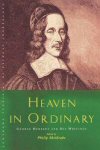
George Herbert is one of English spirituality’s most treasured voices and, with his contemporaries Lancelot Andrewes, Izaak Walton, and Nicholas Ferrar, he epitomizes the best of the seventeenth-century Anglican tradition—learned, holy, and self-effacing. In this volume, Philip Sheldrake explores key themes in Herbert’s work: his deep biblical and liturgical roots, his Christ-centered spirituality, his emphasis on the importance of the everyday, his strong sense of place, his understanding of discipleship, his approach to prayer, and his spirituality of service. Richly illustrated with excerpts from his poetry, prose and letters, this volume offers a comprehensive study guide to one of the most loved poetic voices.
Philip Sheldrake is professorial research fellow in the department of religion and theology at the University of Durham. He has written extensively in the field of spirituality and is editor of The SCM Dictionary of Spirituality.
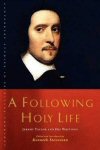
Jeremy Taylor rose to prominence in the Golden Age of Anglicanism. It was a time when a distinctive Anglican doctrine and piety could flourish and Jeremy Taylor was a key voice. His devotional books, Holy Living and Holy Dying, are spiritual classics, noted for the beauty of their prose and reflecting his celebrated preaching skills. This volume draws from Jeremy Taylor’s large body of writings—theological and devotional—to introduce the breadth of his thought and his lasting influence.
Kenneth Stevenson was a former bishop of Portsmouth and a leading authority on the Caroline Divines. Stevenson’s many books include Take, Eat: Reflections on the Eucharist and Watching and Waiting: A Guide to the Celebration of Advent.
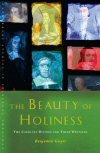
The Beauty of Holiness: The Caroline Divines and Their Writings offers a portrait of the continued maturation of Anglican theology and devotion in the central half of the seventeenth century. The Caroline Divines have long been hailed as the patrons of the Golden Age of Anglicanism. Their emphasis on liturgical renewal and development, and learning and piety, has had a pervasive influence on the Anglican ethos that extends to the present. The Beauty of Holiness includes selections from key figures such as Lancelot Andrewes, John Cosin, and Jeremy Taylor, as well as lay writings, some of which were published posthumously. The Beauty of Holiness functions as both an introduction to the Anglican past and a catechism for the Anglican present.
Benjamin Guyer is a graduate student in British history at the University of Kansas.
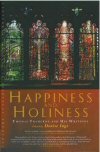
The seventeenth-century writer Thomas Traherne is increasingly being recognized and studied as both a theologian and a poet. The discovery, in 1997, of five new prose works and a poetic work has given huge impetus to the study of Traherne in both literature and theology. This volume offers an introduction to Traherne’s life and work, focusing on Traherne primarily as a theologian and placing him in an historical and intellectual context.
Denise Inge studied Thomas Traherne for her doctorate and established the authorship of the manuscripts discovered at Lambeth Palace.
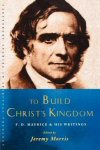
Frederick Denison Maurice had a significant influence on the understanding and practice of Anglicanism. Maurice shaped the theology of ministry, its doctrines of atonement, Incarnation, and the Trinity, its ideas of heaven and hell, its exercise of social responsibility—the defining qualities of Anglicanism. This volume draws on Maurice’s sermons, pamphlets, and classic texts. An introductory essay explores the man and his remarkable legacy.
Jeremy Morris is dean of Trinity Hall, Cambridge and is author of the recently published F. D. Maurice and the Crisis of Christian Authority.
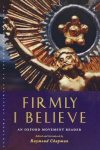
What we know today as Anglo-Catholicism began with a small act of political protest in an Oxford pulpit. In 1833, John Keble preached a sermon that gave voice to widespread and growing fears of increasing state control of the Church and erosion of its status. Keble’s sermon sparked an immediate and active response and the Oxford Movement sprang into life. Publications flowed from its luminaries, including John Henry Newman and Edward Bouverie Pusey—ninety influential tracts and other works focused on the themes that today characterize Anglo-Catholicism: a high doctrine of the Church as a divine society, the importance of the sacraments, insistence that Anglican clergy were priests in the Apostolic Succession with sacerdotal power, and the quest for personal holiness. Firmly I Believe offers a wide selection of the writings of the Tractarians and other supporters of the Oxford Movement. This unique volume is both an ideal starting point for students and scholars and a rich treasury of Anglo-Catholic devotion and theology.
Raymond Chapman is emeritus professor of English literature in the University of London, is a non-stipendiary priest in the diocese of Southwark, and was vice-chairman of the Prayer Book Society.
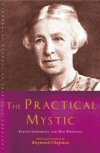
Evelyn Underhill was one of the most widely read spiritual writers in the first half of the twentieth century. A prolific writer of letters and diaries as well as novels and spiritual works, she was a popular broadcaster, speaker and retreat leader. Fascinated with the nature and meaning of mystical experiences from childhood, her classic works focused on the spiritual life. Yet, she also valued practical Christian service equally. The Practical Mystic offers an introduction to Underhill’s works, a selection of her writings, and commentary.
Raymond Chapman is emeritus professor of English literature in the University of London, is a non-stipendiary priest in the diocese of Southwark, and was vice-chairman of the Prayer Book Society.
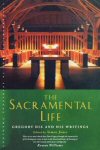
Gregory Dix, an Anglican Benedictine monk, scholar, writer, and broadcaster, was one of the most engaging public figures of his day. His classic work, The Shape of the Liturgy, has remained in print for 60 years. Apart from this magnum opus, Gregory Dix left many pamphlets, papers, sermons, radio talks, and other unpublished texts. From this remarkable archive, Simon Jones has created a text that will be valued in teaching, study, and as devotional reading for a new generation. It focuses on topics, such as, the Eucharist, baptism, ministry, holy order, the Christian life, and unity.
Simon Jones is also the author of the introduction to The Shape of the Liturgy, New Edition.
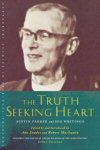
Austin Farrer was part of the extraordinary mid-twentieth-century group of “Oxford Christians,” which also included C. S. Lewis, Charles Williams, and Dorothy Sayers. Farrer’s great legacy is that his considerable learning expressed itself as practical spiritual direction. He believed that after all the argument, analysis and sifting of evidence, the purpose of theology was to show how to live and how to love. The Truth-Seeking Heart is a thematically arranged anthology of Farrer’s most influential writings with an extended introduction that assesses his contribution to Anglican life.
Ann Loades is professor emerita of divinity in the University of Durham. Loades is a well-known author of numerous titles in spirituality and feminist theology.
Robert MacSwain is editor of Grammar and Grace and is tutor and associate chaplain at St Chad’s, Durham.
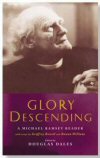
Michael Ramsey is regarded by many as one of the greatest archbishops of the twentieth century—a man of spiritual depth who inspired a generation of Anglicans. The first part of Glory Descending offers selections from Ramsey’s writings, which constitutes a body of spiritual theology and teaching. The second and third parts of the book contain Ramsey’s lectures and sermons.
Douglas Dales is chaplain and head of religious studies at Marlborough College, Wiltshire.
John Habgood was archbishop of York from 1983 to 1995 and was previously vice principal of Westcott House, Cambridge; principal of queen’s college, Birmingham; and bishop of Durham.
Geoffrey Rowell is the bishop of Europe. He was chaplain of Keble College, Oxford, from 1972 to 1994. His many published works include Flesh, Bone, Wood and Come, Lord Jesus. He was also a co-editor of Love’s Redeeming Work: The Anglican Quest for Holiness.
Rowan Williams is the archbishop of Canterbury. He was previously dean of Clare College, Cambridge, and Lady Margaret Professor of Divinity at Oxford. He has written numerous academic and devotional books, including Arius, Ponder These Things, and The Dwelling of the Light.
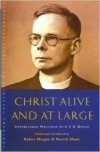
The renowned Anglican biblical scholar Charlie Moule, as he was popularly known, came from an eminent church and missionary family. He obtained a first at Cambridge and trained for ordination at Ridley Hall, where he later became vice-principal at the age of 28. His Cambridge career culminated in his appointment as Lady Margaret Professor of Divinity, a post he held for 25 years, where he influenced a generation of Anglican leaders. This text includes an introduction to the life and works of C. F. D. Moule, a compilation of his writings on topics including the energy of God, biblical theology, and Christian practice and belief, as well as a collection of his sermons.
Robert Morgan is a lecturer in theology at Linacre College in the University of Oxford.
Patrick Moule is C. F. D. Moule’s nephew.